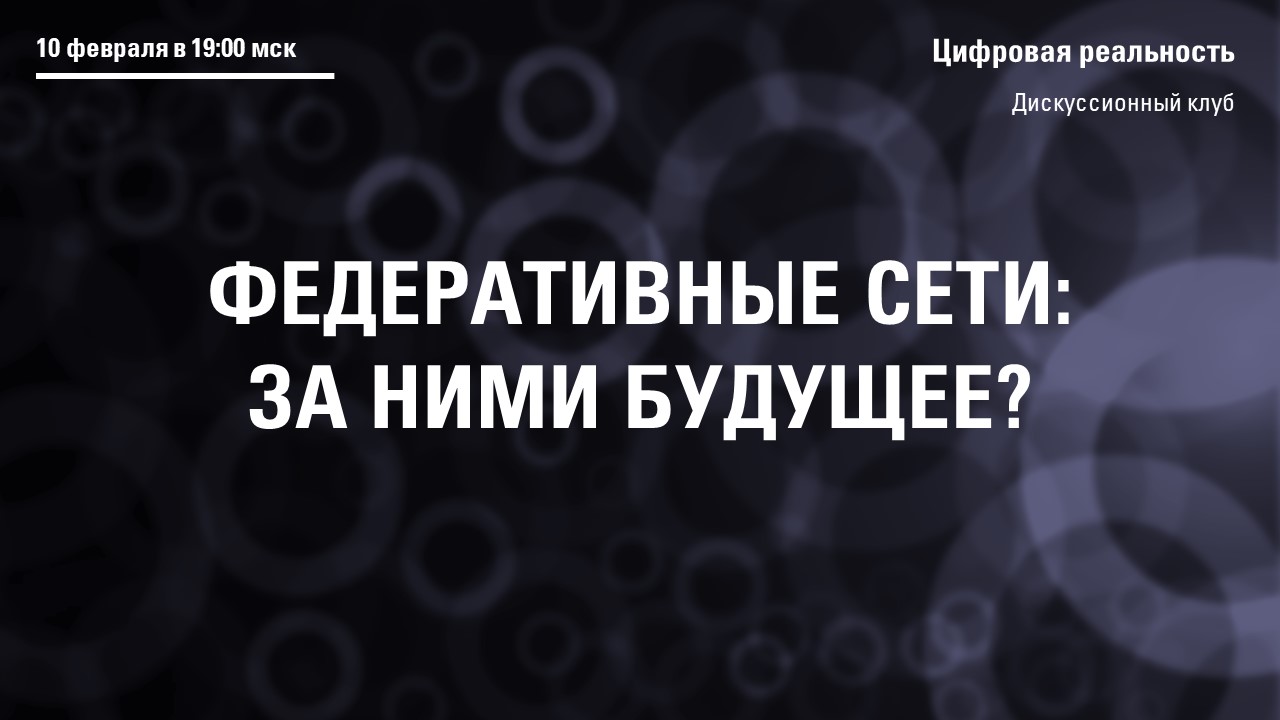
This year's first meeting of the Discussion Club "Digital Reality" dedicated to federated networks was held on February 10th. Ilona Stadnik, the moderator of the meeting, noted that today's Internet is much more centralized and monopolized by various services and platforms than the one that was originally planned by the creator of the World Wide Web Tim Berners-Lee 30 years ago. And if at first centralization and unification worked for the convenience of users, then as time went on, the reverse side of the coin began to appear, and users and their data do work for the benefit of large corporations.
There are also issues related to content regulation, freedom of speech, censorship, and privacy. Alternative services based on the idea of federated networks while using their own protocols begin to appear in or around the 2010s.
Fediverse is a well-known example of such structures. This is an association of decentralized Internet services operating on the principle of the federation - a user can interact with other services without registering in them having an account in one single service.
The meeting participants discussed the idea and its technical implementation, underlying federated networks, as well as instances, user control in a decentralized architecture, the Fediverse business model, the possibility of blocking and slowing down federated social networks, and much more.
The guests of the meeting were:
- Kseniya Yermoshina, Research Fellow at the Center for Internet and Society (CIS CNRS), UX Researcher at Delta Chat
- Dr. Quadragon, Fediverse Ambassador
- Alibek Omarov, open-source developer
You can find out whether federated networks are our future or not, and watch the broadcast here.



